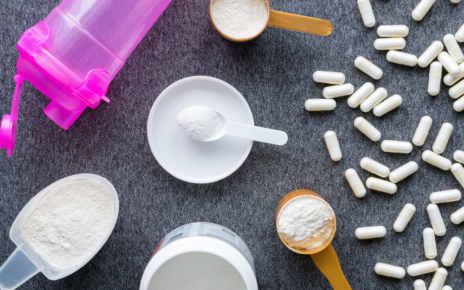Is milk keto friendly? Milk can be obtained from dairy and non-dairy sources and it is usually available in different forms – powdered and liquid.
When it is obtained from the mammary glands of cows, sheep, and goats, and then processed, it is usually labeled dairy milk. Pasteurization, refrigeration, and homogenization are just some of the processes involved in making milk.
This type of milk is very popular and is used in various recipes. For example, dairy milk may be added to coffee and cereal. The non-dairy sources of milk include soy milk from soybeans, almond milk from almonds, coconut milk from coconuts, just to mention a few. There is often some confusion about which milk can be used for the keto diet. It is very clear that any milk is considered unsuitable for keto when it contains an excess amount of carbohydrates.
Those who want to add milk to the keto diet must also avoid sweetened milk in any form. This article discusses some keto-friendly milk and the top reasons why certain forms of milk MUST be excluded from keto.
Keto-Friendly Milk Varieties
1. Almond Milk — Because It Is Low In Carbs: Almond milk is one of the keto-friendly milk used by many persons around the world. In one cup or 240ml of unsweetened almond milk, there is only 1.4 grams of carbohydrates and about 3 grams of fat. This means that including it to recipes on keto will not affect blood sugar and insulin levels. Another reason why almond milk is very popular among keto dieters is that it can be found in most stores at a very cheap price. It is also low in calories and contains important nutrients like calcium that can help build stronger bones. The type of almond milk that is suitable for the keto diet is the unsweetened variant. The sweetened almond milk usually contains less fat and excess carbs and give more calories that can halt ketosis. It is thus very important to check the ingredients when purchasing almond milk to know if it contains sugar or not.
2. Coconut Milk — Due to Its High Fat Content: Unsweetened coconut milk is made by boiling shredded coconut and water. This is another keto-friendly milk as it contains a high level of fat – one cup or 240ml of coconut milk contains 57 grams of fat. It equally contains few carbohydrates ( about 13 grams of carbs in one cup) and it is low in calories. The coconut milk is also a good source of several minerals and vitamins including iron, magnesium, and vitamin C. It may also be able to promote fullness since it contains fiber. Thus, the addition of coconut milk to the keto diet may help with weight loss by reducing appetite and overall calorie intake.
3. Macadamia Nut Milk — Because Of Its Extremely Low Carb Content: Macadamia nut milk as the name suggests is gotten from the macadamia nuts. Unsweetened macadamia nut milk contains about 1 gram of carbohydrate making it suitable for the keto diet. Some brands that produce macadamia milk even advertise it as containing zero net carbs. It also has fiber and may be used to promote satiety and curb hunger cravings. The only drawback that comes with the use of macadamia nut milk on keto is that some people are allergic to nuts and it is quite expensive when compared to other types of milk that are not derived from nuts.
4. Flax Milk — Low in Carb, High in Fat: Flax milk gotten from flaxseeds is another source of milk that perfectly fits the keto diet. It is made by blending flaxseeds with water and a pinch of salt. The milk obtained in this manner is very rich in omega 3 fats that are known to have anti-inflammatory properties. Regarding its use on keto, a cup of flax milk contains only 1 gram of carbohydrates just like the macadamia nut milk. Also, compared to the number of carbs, the amount of fat in flax milk is high, about 2.5 grams in a cup. It is also a great source of calcium, phosphorus, iron, potassium and many vitamins. Just like others, the unsweetened flax milk is what should be included in keto.
5. Unsweetened Soy Milk: The addition of soy milk on keto is not accepted by some, however, it is relatively low in carb and high in fat. In one cup or 243ml of unsweetened soy milk, there are about 1.6 grams total carbohydrates, 1.1 grams of fiber and 1.7 grams total fat. The macronutrient profile of unsweetened soy milk suggests that it is a good addition to the keto diet, however, there are certain drawbacks. On the one hand, it is highly processed and consuming this milk may disrupt certain hormone levels in the body. On the other hand, there are some compounds in soy milk that may irritate the gut and cause inflammation.
6. Pea Milk: Pea milk is derived from yellow peas which are grounded to get flour. The pea protein is then extracted and blended with water to get milk. It is a suitable alternative to dairy milk on the keto diet. Some brands claim that pea milk contains zero carbs and about 4.5 grams of fats. This milk is suitable for individuals on the keto diet who are allergic to nuts and soy. Another plus for the pea milk is that it is lactose-free and can be consumed by those who are lactose intolerant. Although the pea milk is obtained from plants, its taste is very similar to dairy milk, hence it is popularly used as an alternative to dairy milk. It is also a rich source of proteins that are required by the body and contains a good amount of calcium.
7. Hemp Milk: Hemp milk is another keto-friendly milk that is rich in protein. It can easily be prepared at home by blending shelled hemp seeds and water. The macronutrient profile of the hemp milk also favors the keto diet. In one cup of hemp milk, there are 7 grams of fat and only 1 gram of carbohydrates. It is also a very good source of proteins and fiber. Both protein and fiber can help to reduce appetite, promote satisfaction and thus promote weight loss. Those who use the keto diet to achieve weight loss will also find the protein content in hemp milk to be of immense value. The addition of hemp milk to different recipes on keto can help build muscle mass and promote better control of weight.
Why Dairy Milk is Not an Option for Keto Dieters
Dairy milk is usually obtained from farm animals like sheep, goats, and cows. Unlike the milk derived from nuts and plants, dairy milk has no place on the keto diet. The reasons for excluding this type of milk on the standard ketogenic diet are discussed below.
1. Dairy Milk Contains a Considerable Amount of Carbohydrates: One cup of whole cow’s milk gives about 149 calories, 11.7 grams of carbs and 8 grams of fat. This macronutrient profile does not go well with any low-carb diet so whole cow’s milk should not be included on keto. The reason for this is obvious – the keto diet allows the consumption of a certain amount of carbs per day. When whole cow’s milk is consumed on keto, the daily carb requirement can easily be exceeded.
2. Dairy Milk Contains Lactose: Milk is made up of lactose, which could be very difficult to digest for some people. This is why most people on the keto diet are advised to stay away from milk and many dairy products completely. Also, the lactose is a sugar and can affect blood sugar and insulin levels. Remember that foods consumed on keto should not cause any undesirable effect and should not raise the blood sugar levels.
Although dairy milk consumption on the keto diet should be limited or excluded totally if possible, it may have a place in other forms of ketogenic diets including the cyclical ketogenic diet and the targeted keto diet. These types of ketogenic diets usually allow the consumption of a high carb meal at certain times.
Conclusion
Generally, milk is not regarded as keto friendly because it contains some amount of lactose and other carbohydrates. However, some non-diary milk alternatives are available that can easily be added to the keto diet. The unsweetened variants of these non-diary milk are usually preferred for use on keto.
Oh- and don’t worry; you can still enjoy a range of cheeses on keto.



